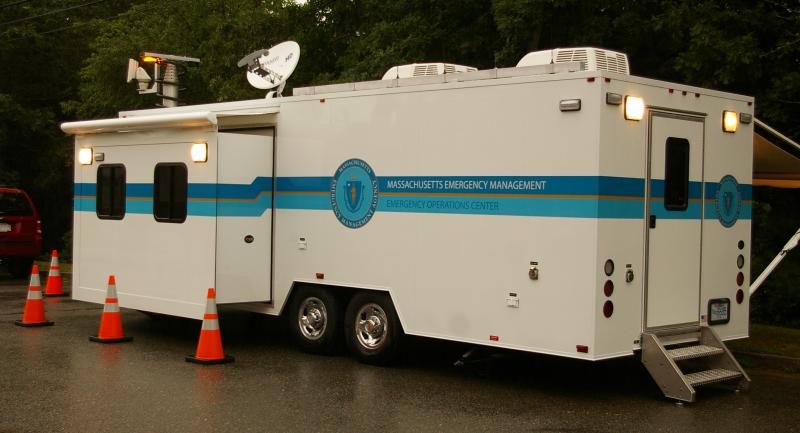Importance of hurricane preparation stressed at forum
They may occur as infrequently as the proverbial blue moon. But once they do occur, they have a huge impact, and it is best to be prepared.
That was the message about hurricanes that state and local officials stressed during the Hurricane Preparedness Forum held at Wareham High School on Tuesday.
"We could go 20, 30, 40, or 50 years [without one], or it could be just a few more months. I can't tell you," said Robert Thompson, Meteorologist-in-Charge at the National Weather Service Forecast Office in Taunton. "We just need to be prepared to respond."
Speakers at the forum and pamphlets available from the Federal Emergency Management Agency stressed that residents should take the following steps in preparing for a hurricane.
First, residents should have an emergency kit that has basic supplies, including food, water, and warm clothes if they live in a cold climate, for at least three days.
Residents should also have plans in place in case a hurricane strikes. Those plans should address how family members will communicate with each other and should have an emergency contact. The plans should also include instructions for how to get out of the area, including alternate routes in case one is blocked off, and how to secure a shelter in one's home in case it is not possible to leave.
Officials also stressed the importance of getting involved and helping the community prepare for a hurricane or other emergency.
"It's a small thing today, but it won't be when a storm hits," said Selectmen Chair Steve Holmes.
Holmes encouraged the audience to get to know their neighbors, especially in light of the fact that many are elderly and can be more vulnerable than others during emergencies.
Hurricanes that impact New England often start in the warm atmosphere of Caribbean, but tend to die down once they reach the cooler waters of New England, said Thompson.
If a hurricane moves up the coast fast enough and retains its strength, however, its impact could be devastating.
Wareham is most vulnerable to what Thompson called "storm surge." Storm surge is the increased height of the coastal tide because of the strong hurricane winds.
The result is a deluge of water that hits coastal areas and damages houses and property.
Thompson mentioned the Hurricane of 1938 and Hurricane Carol in 1954 as two storms that had particularly high storm surges of 11 to 13 feet in upper Buzzards Bay.
"This is an area [that] if we don't have people prepared to respond, we could lose a lot of life," said Thompson.
Tuesday's forum was coordinated by members of Wareham's Local Emergency Management Committee, which includes representatives from local public safety departments as well as interns from Massachusetts Maritime Academy.
The committee received start-up certification from the Massachusetts Emergency Management Agency in late spring.
The committee also developed a "Comprehensive Emergency Management Plan." The plan is a guide that specifies the responsibilities for different departments during emergencies.
The forum was about educating the public about the importance of preparedness for a hurricane, said Chief of Police and Emergency Management Director Richard Stanley.
"We stand ready to assist," said Stanley, adding: "Be prepared yourselves, so we will be in a position to help those that can't help themselves."
Thompson also mentioned that people could get the latest information on hurricanes at the following websites: the National Weather Service at www.weather.gov/boston and the National Hurricane Center at www.nhc.noaa.gov.
Thompson added that additional information on emergency preparedness is available at the Department of Homeland Security and Federal Emergency Management Agency's website, www.ready.gov.













